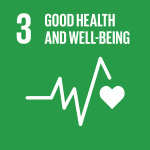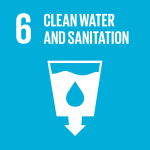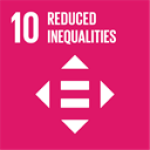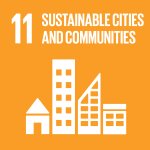Accelerating change: The future of weather, climate and water across generations in Sri Lanka
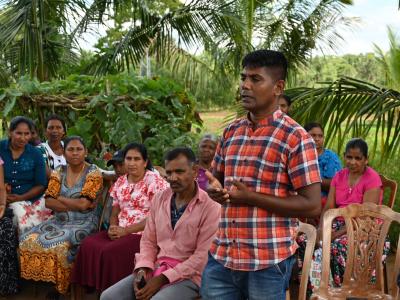
Photo: UNDP Sri Lanka
View the full photo essay by UNDP in Sri Lanka here.
2023 is forecast to be one of the warmest years on record. This is an alarming forecast for Sri Lanka, a country with a volatile risk profile.
The window of opportunity to control climate change is rapidly closing and the world is approaching dangerous tipping points for human health and safety, ecosystems, and infrastructure. Variations in temperature are disrupting rainfall patterns and the water cycle - exacerbating water scarcity, water quality, and water-related hazards.
SRI LANKA RANKS HIGH ON THE GLOBAL CLIMATE RISK INDEX
Sri Lanka, while rich in water resources, has issues with water management. Only around 60 percent of the total population has access to pipe-borne water.
On the Global Climate Risk Index, Sri Lanka ranks very high – specifically in regard to climate change induced risks to water. This predicts vulnerability in the country’s water infrastructure and security, in terms of both quality, quantity and salinity intrusion. As Sri Lanka is dependent on natural resources for its economy and employment generation, increased climate externalities will have unprecedented consequences to lives and livelihoods, especially in sectors like agriculture.
This year’s World Meteorological Day brings into focus the theme “The Future of Weather, Climate and Water across Generations” and relatedly on World Water Day, people are being called upon to be the change in accelerating change to solve the water and sanitation crisis.
The Climate Resilient Integrated Water Management Project (CRIWMP) embodies these themes. Spanning seven years, and supported with finance from the Green Climate Fund, the project seeks to strengthen the resilience of smallholder farmers in the Dry Zone of Sri Lanka to climate variability and extreme events through integrated water management.
CLIMATE CHANGE IMPACTS IN THE DRY ZONE HAVE CASCADING AND DEVASTATING SOCIAL IMPACTS
The Dry Zone is Sri Lanka’s agricultural heartland, providing employment to 27 percent of the country’s population, and supplementing domestic food requirements. As such, climate change impacts to the Dry Zone has cascading and devastating social impacts that can entrench generations of rural communities in cycles of poverty and debt.
In this context, the CRIWMP’s solutions to water resilience and climate change adaptation are ever-more important, especially given the paradigm shift that the project has created in positing integrated water resource management as a means toward climate change adaptation. The project’s progress so far provides ample evidence to the innovative solutions that are desperately needed to ensure the resilience of Sri Lanka’s rural communities.
The project’s investment in water infrastructure has enhanced availability and access to safe drinking water and sanitation, benefiting women, children, young girls, and vulnerable communities in project districts.
“Since we receive the necessary weather forecasts from the project on time, it was possible to start cultivation at the right period and get more harvest and profit than expected...The standard of living of the people in our village has improved because of this project.”
The project is benefitting 9,308 people (4,748 of them women) through new community-management rural water schemes that facilitates access to clean drinking water. A further 25,747 beneficiaries (13,131 women) are receiving access to safe drinking water through water treatment and purification systems at communal locations (for example, community-managed water systems, schools, and health centres). The project interventions also include 3,127 roof rainwater harvesting and storage systems benefitting an additional 12,498 persons (6,374 women).
The investments in social infrastructure for drinking water have also contributed to easing women's household care burdens and has generated jobs that employ around 2,000 women in rural water supply schemes. In order to accelerate change, the project has introduced different types of groundwater recharging options to its beneficiaries. From which, 20 households of the Buduruwakanda Village in Galgamuwa are already benefitting.
“The project trained us on how to record and use the rainfall data to solve our irrigation issues. After measuring the amount of rainfall, the water controller decides the irrigation interval, and water is release for cultivation from the irrigation tank.” - Sasanka Dinesh, Athaudagama Village, Polpithigama
CAPACITY BUILDING INTERVENTIONS
Under the project, the capacity building interventions targeting climate change in the water sector include developing district-based training resource pools, and training stakeholders and beneficiary communities on climate resilient water safety and security plans, and climate-resilient adaptation for drinking water.
The project also promotes the dissemination of meteorological advisories and forecasts to enable climate resilient water management and disaster resilience. Through the project, 313,722 people (115,076 of them women) are receiving water management advisories on disaster preparedness. Seasonal forecasts for agriculture planning, weather and agro-meteorological advisories are being shared with a further 611,049 people (more than half of them women).
“Agro-met information existed before but the information never really reached the grassroots. With the involvement of the project and the capacity development trainings, information has reached farmers in all corners of the community. Because of these trainings, the farmers also trust these systems and are now seeking out this information." - Mr. Prasanna, Agriculture Instructor, Provincial Department of Agriculture
THE DRY ZONE IS SRI LANKA’S AGRICULTURAL HEARTLAND, PROVIDING EMPLOYMENT TO 27% OF THE COUNTRY’S POPULATION - WITHOUT WATER SECURITY, THERE CANNOT BE ANY OTHER KIND OF SECURITY
With changing climate scenarios, and worsening inequalities amidst the crisis, ensuring water resilience is critical in catalysing development leaps in other social, environmental and economic facets. Without water security, there cannot be any other kind of security.
World Water Day and World Meteorological Day are a stark reminder that the world is off-track on its journey to achieving water security and disaster resilience.
The CRIWMP is implemented by the Government of Sri Lanka with technical support from the United Nations Development Programme (UNDP) and funded by the Green Climate Fund

